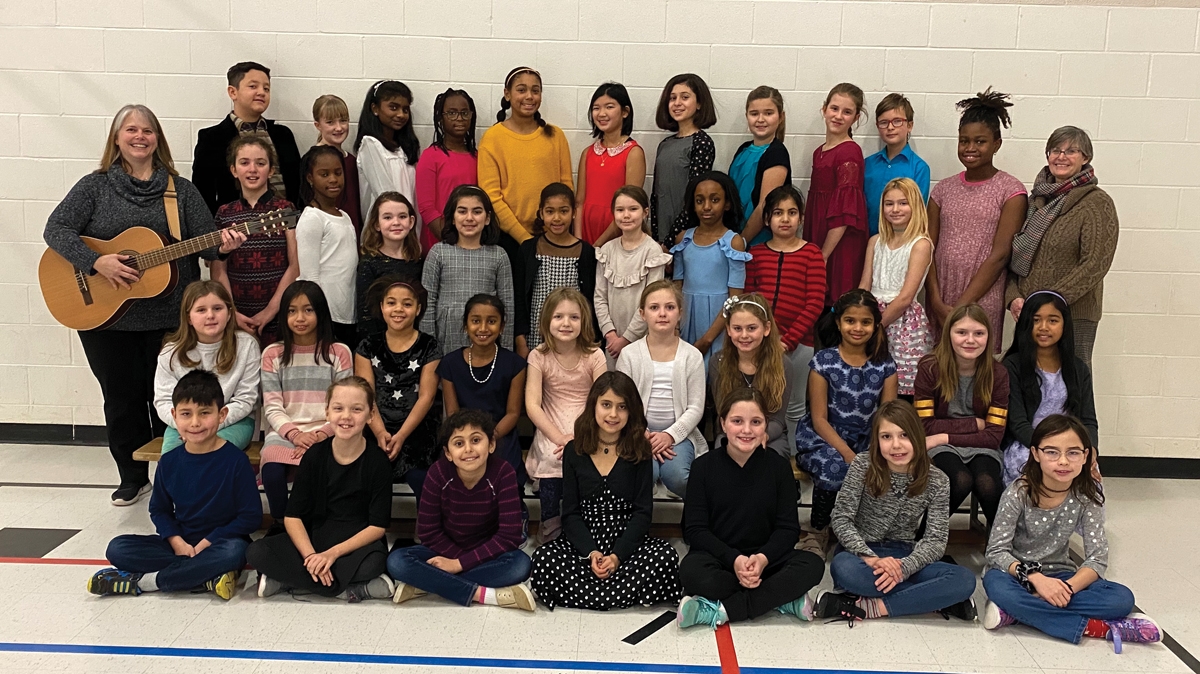
Ontario Education Must Learn to Deal with Massive Spending Cuts
The public education system in Ontario will be hit with $2.6 billion in cuts over the next three years. The education cutbacks will have an enormous impact on students and teachers across the province. Ottawa Life spoke recently with Ken Coran, president of the Ontario Secondary School Teachers’ Federation.
OTTAWA LIFE: What’s your take on the Ontario government’s proposed changes to education funding and cuts to education budgets?
Ken Coran : Through the government’s deficit-reducing measures and the Drummond Report (Commission on the Reform of Ontario’s Public Services), it was repeatedly indicated that the government was going to invest more in education and in health care. In education, they said the budget would increase by 1 per cent to 1.5 per cent. But what we’re actually seeing is that they are taking money out of education – $500 million in year one. In the second year, it’s projected to be $850 million. And in year three, it’s projected to be $1.2 billion. That’s quite severe. The government is trying to address the deficit by 2017-2018, but whenever there are any kinds of reductions, obviously there are going to be some unfortunate results.

Those cuts started immediately. This past March, right after the Budget was introduced, the next thing that happened was something called the Grants for Student Needs. Those are the funds that flow to the school boards. This affects boards directly as funds are allocated based on needs, and other issues like enrollment. It’s a two-pronged scenario. One is the infrastructure – the buildings that house the students and the facilities, and the people who work in those buildings. These factors vary across the province, from region to region. Add to that declining enrollment, especially in the secondary panel. There are 72 school boards across the province: 31 are English Public; 29 are English Catholic; there are four French Public; and there are eight French Catholic. Therefore, the extent and impact of the funding changes and cuts to board budgets are yet unknown.
OTTAWA LIFE: Many educators were expecting cuts to be announced last March, but not to this extent. Why do you think the cuts to education were deeper than expected?
Ken Coran: The fact is that education and health care are a large proportion of the government’s budget. Because of that, obviously those would be the ones where any changes would have the most significant impact on finances. There has been tremendous improvement in education over the last eight years. That improvement has largely been the result of greater collaboration with government and of having the funds to make sure there were enough teachers and support staff to provide the resources the students need and to deal with emerging issues, such as mental health issues. Our concern is if we start to lose teachers and support staff personnel, will this collaboration and some of the gains that have resulted in Ontario having one of the best education systems in the world – be challenged? We are also concerned with the whole collective bargaining process. Where will that scenario end? Right now there is only one education union that is really still talking to the government. The others have pulled away from discussions (in frustration over the government’s intransigence). The government is trying to freeze wages and in our case, (for OSSTF), we acknowledge the fact there’s a deficit and that the government has to address these financial concerns. We proposed to the government that we would accept a wage freeze for two years. We also proposed other cost-saving measures. The government flat out rejected our proposals. The areas where they’ve really dug in their heels won’t result in the harmonious relationship that seems to have existed in the past. Teachers will individualize some of these measures if in fact they end up occurring. They will make their decisions accordingly based on how some of these changes may impact them.
OTTAWA LIFE: How does this slashing of the education budget square with the Ontario government’s pursuit of a knowledge economy?
Ken Coran: You can read quotes from the Minister of Education or the Premier and they will consistently say that over the last eight years there have been significant gains in education, which there have been. It’s one thing to have buildings but it’s another thing to have the people in the buildings performing at the highest level. We believe that our educational workers – both teachers and support staff – are working at capacity right now. So if you were to alter some of those working conditions, or reduce the number of staff, if we’re already working at 100 per cent, and you remove some of those things, then obviously you can’t be expected to continue to work at that level. And if they do continue to work at that level, can they still get the results as all these other components are changing? So I think it is a concern that you can only ask so much of people and then, when things change, the actions may change a bit. As educators, we try to have students achieve the highest level of success they can, but when some of these other things are changing, the ability to do that is reduced. And so it would be this reduction that I think is the concern. This will impact different boards differently based on decisions made locally. We believe that the more individual attention a student gets, and the more resource-people there are to deal with these identified special needs, that obviously will provide the best results.
OTTAWA LIFE: How will the cuts affect Ottawa school boards? What are the expected job losses/school closures in the National Capital Region and how will these affect standards of education in Ottawa?

Ken Coran: I believe in Ottawa the enrollment is pretty much status quo and may even be up a bit. Therefore, with regards to the Ottawa-Carleton District School Board, my assumption would be that job cuts are not likely to occur. Not so everywhere. In other places we’re going to experience severe cuts, obviously.
Since 2007, every school board has set up Accommodation Review Committees, tasked to look at the capacity and enrollment of each school. The committees then determine to what percentage of the capacity the school is actually using. Most boards will look at these capacity reports on a yearly basis, and then determine if some schools should be closed, or amalgamated. There may be areas where new schools should be built, based on the demographics and the population growth. School trustees are tasked with some difficult decisions. I think you have to look at things such as school configuration. Are there ways to combine classes? Can you have a grade 7 to 12 school, for instance, instead of just a grade 9 to 12 school? Or it might be better to have some students from a senior elementary school move into a nearby secondary school that’s not at capacity to make better use of the facilities. A number of school boards are starting to do things of that nature. And of course the big news that all school boards are working under now is that the government has announced plans to amalgamate school boards again. It is our understanding that this may occur in the next two years. That could also really change the way things are structured.
OTTAWA LIFE: In your speech at the Ontario Federation of Labour’s Day of Action Against Cuts on April 21, you said: “We have a saying in our organization, our organization represents 60,000 educational workers, and we live by one theme, and that theme is ‘actions speak louder than words.’” What actions does the Ontario Secondary School Teachers’ Federation plan to take to stop or curtail these spending cuts?
Ken Coran: We provided pre-budget submissions. We continue to lobby politicians and we try to help in as
many ways as possible with suggest-ions and collaboration, but the recent actions from this government are not lending themselves to that collaboration anymore, which is very concerning to us. Statements have been made, and the reality is that problem-solving is very important and we would expect the government to problem-solve or collaborate in a manner indicative of the way they did things in the past, which they are not doing right now. We’re the front-line workers and we’re the ones who believe that when we make suggestions, they should be respected. There should be discussion and if it’s in the best interests of students, then that should be something that receives the necessary funding.
OTTAWA LIFE: Is there any way to end this story on an upbeat note?
Ken Coran: I wouldn’t say so right now. The Premier has made statements that all the collective bargaining will be done by September 1. We would hope that, if that is the case, it will be done so both sides are respected and the previous collaboration can continue and that the educational workers – teachers and support staff – would be respected and that this respect would be illustrated in the collective bargaining process. Unless things change, we will be taking strike votes across the province from August 28 through to the first week of September.













